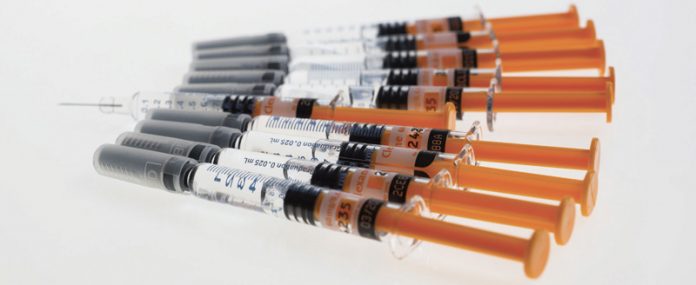
In the history of medicine, there’s very few advancements that have saved as many lives as vaccines. Prior to vaccinations, entire populations were decimated with communicable diseases like poliomyelitis, which killed thousands of Americans every year prior to the 1960’s when Drs. Salk and Sabin invented polio vaccines. Greater than 160,000 people worldwide die every year from a preventable disease known as Pertussis, or whooping cough. According to the CDC, the measles vaccination prevented 21,100,000 deaths between the year 2000 and 2017. There are also vaccines for meningitis, tetanus, hepatitis, cervical cancer, mumps, and typhoid. One day, we may also have a vaccine for HIV and hepatitis C, possibly other cancers as well.
The actual origin of vaccines goes back possibly as far as 200 BC, when the Chinese ground up smallpox scabs to blow into the nostrils of children who had not yet been infected. Modern immunizations began with Dr. Edward Jenner and his smallpox vaccine in England. Smallpox first appeared around 10,000 BC, and was responsible for the deaths of millions across many countries and continents. Around 1799, Dr. Jenner was promoting a vaccine for smallpox in England, and it reached much of Europe by 1800. Dr. Jenner had noticed two very important things: survivors of smallpox developed immunity to it, and victims of cowpox never suffered the severe effects of contracting smallpox. Dr. Jenner took a cowpox lesion from a young dairy maid and inoculated a small boy with the virus. The boy was sick for nine days, but recovered completely. He then inoculated the boy with smallpox, and no disease whatsoever developed, leading him to conclude that the boy had developed complete protection from smallpox after surviving inoculation with cowpox.
Despite their proven worth in saving millions of lives, vaccines have come under scrutiny by the public. In 1998, a British gastroenterologist, Dr. Andrew Wakefield, published a very flawed, very small, biased study that concluded that there may be a link between the MMR vaccine and autism. Almost immediately, several other larger epidemiological studies followed that quickly disproved the link. It was then found that Dr. Wakefield had been financially supported by lawyers that were trying to sue vaccine creators. He was subsequently charged with fraud, which resulted in his “study” being removed. Since then, Dr. Wakefield has been struck off the UK medical registry for unethical behavior, misconduct, and dishonesty.
Unfortunately, celebrities armed with misinformation have made an anti-vaccination movement popular in America. Many studies have shown again and again that there’s no link between autism and vaccination. I have been vaccinated, my family has been vaccinated, and we’re happy to report that we’ve suffered no neurocognitive side effects and have never suffered infection with measles, mumps, rubella, diphtheria, tetanus, haemophilus, meningitis, Japanese encephalopathy, HPV, pertussis, polio, or influenza.
Vaccines have saved millions of lives over time and practically eradicated certain diseases from the face of the earth. Some infections are making a comeback due to parents that are concerned that vaccinating their children could cause developmental delays, but their fears are unfounded. If you have any questions about the safety of vaccines, you should talk to your primary care doctor for further insight. Rest assured, though, in the history of medicine, nothing has saved more lives and prevented more disease than being vaccinated to fortify your immune system to fend off disease.










